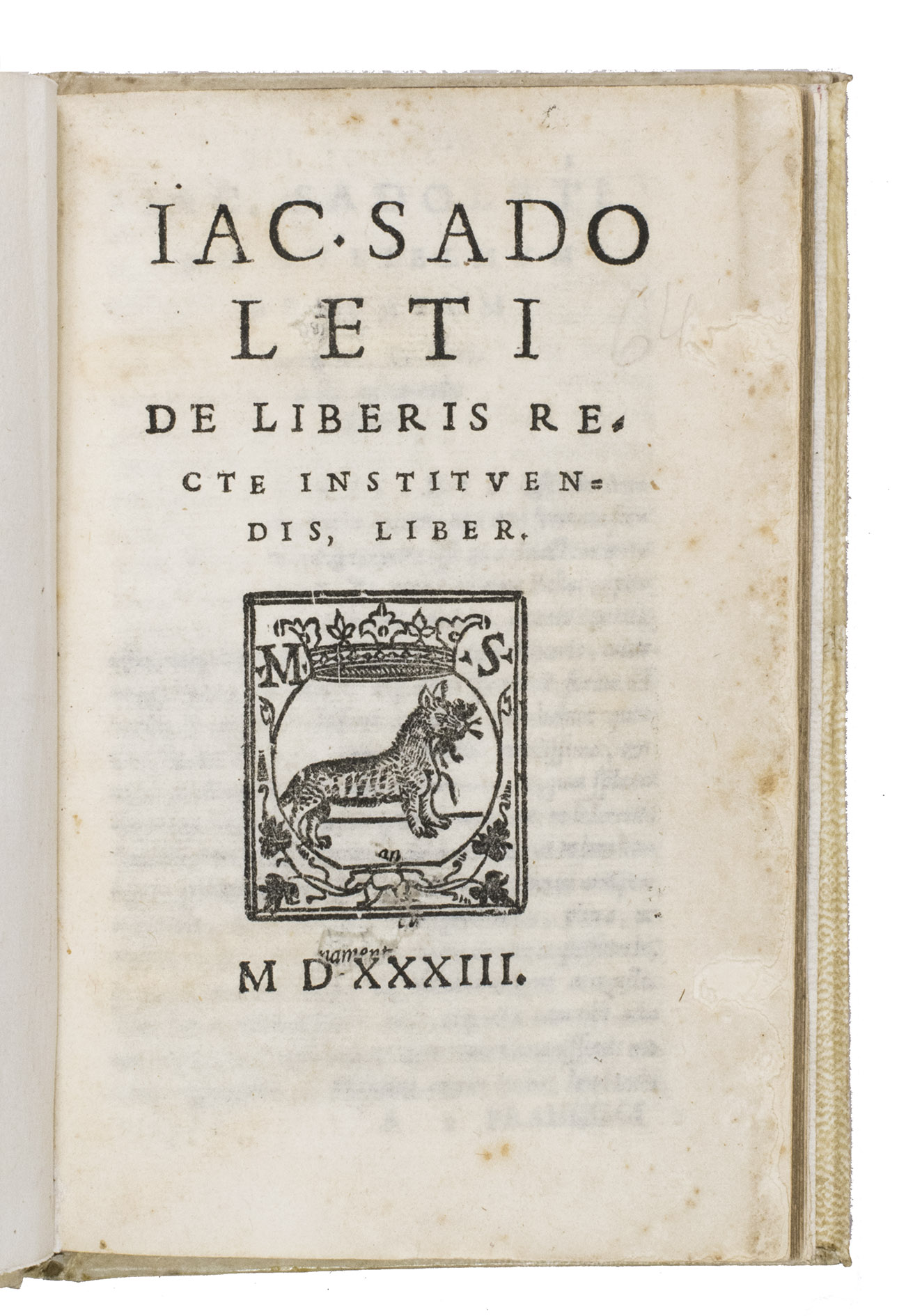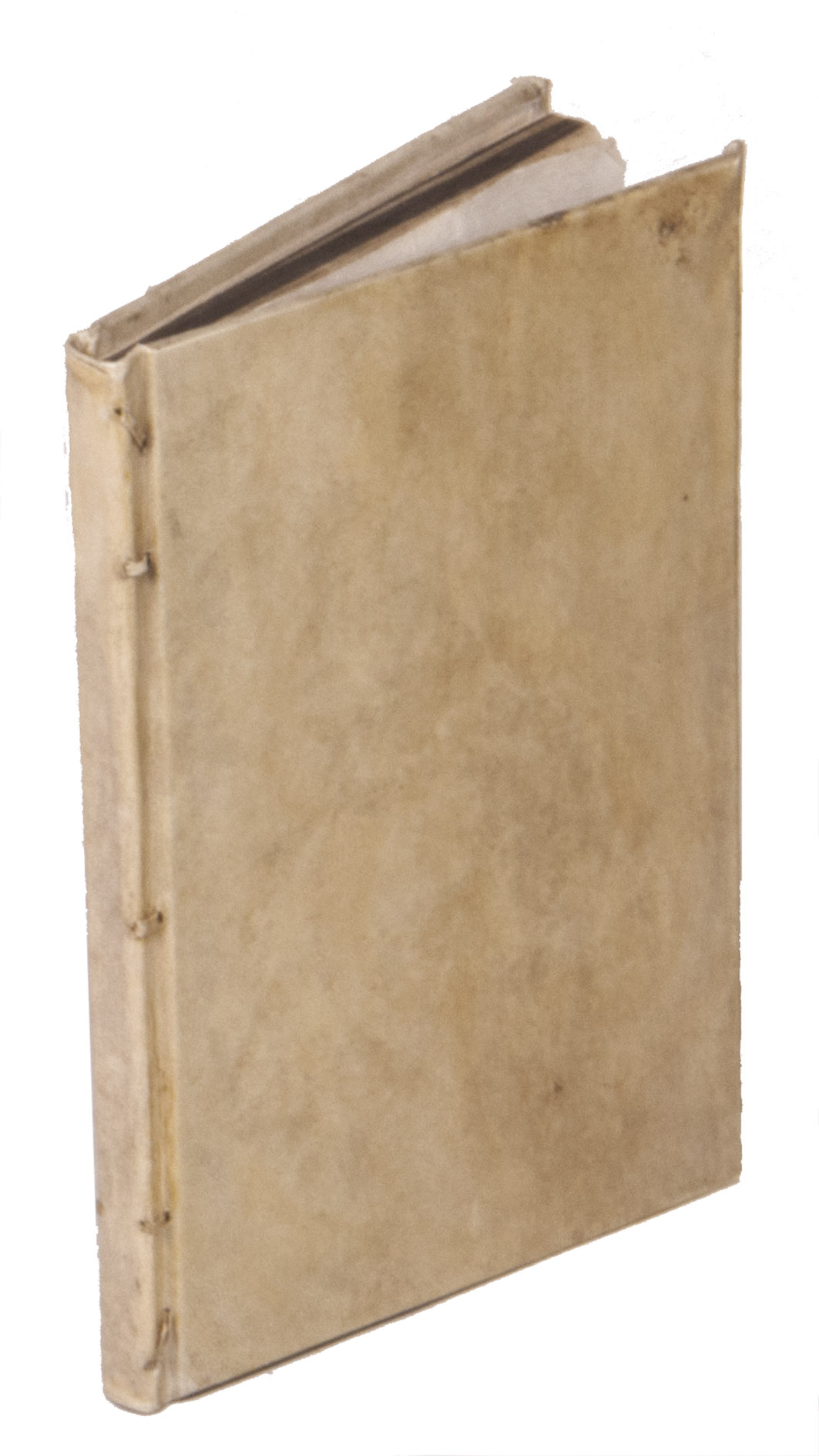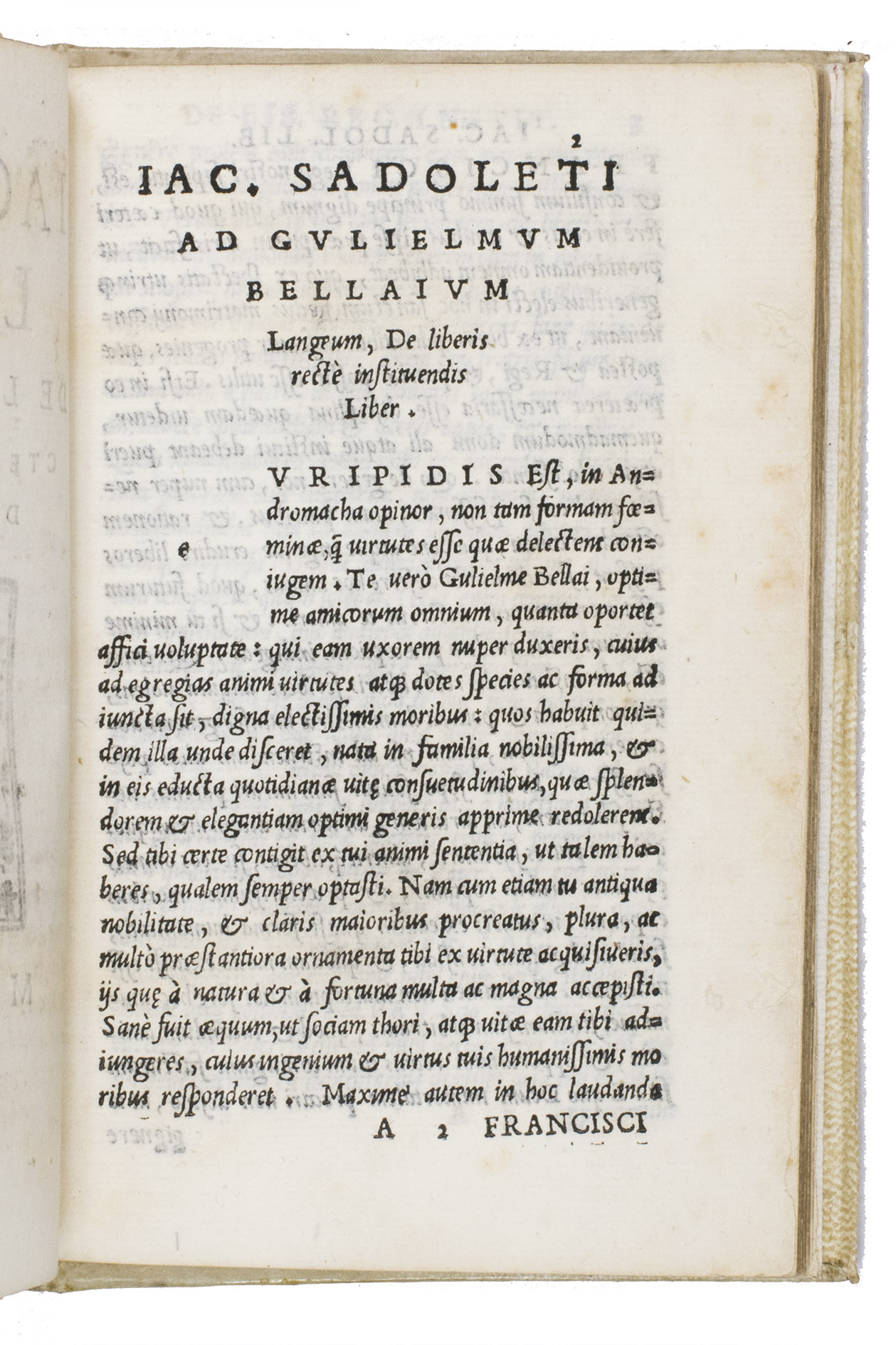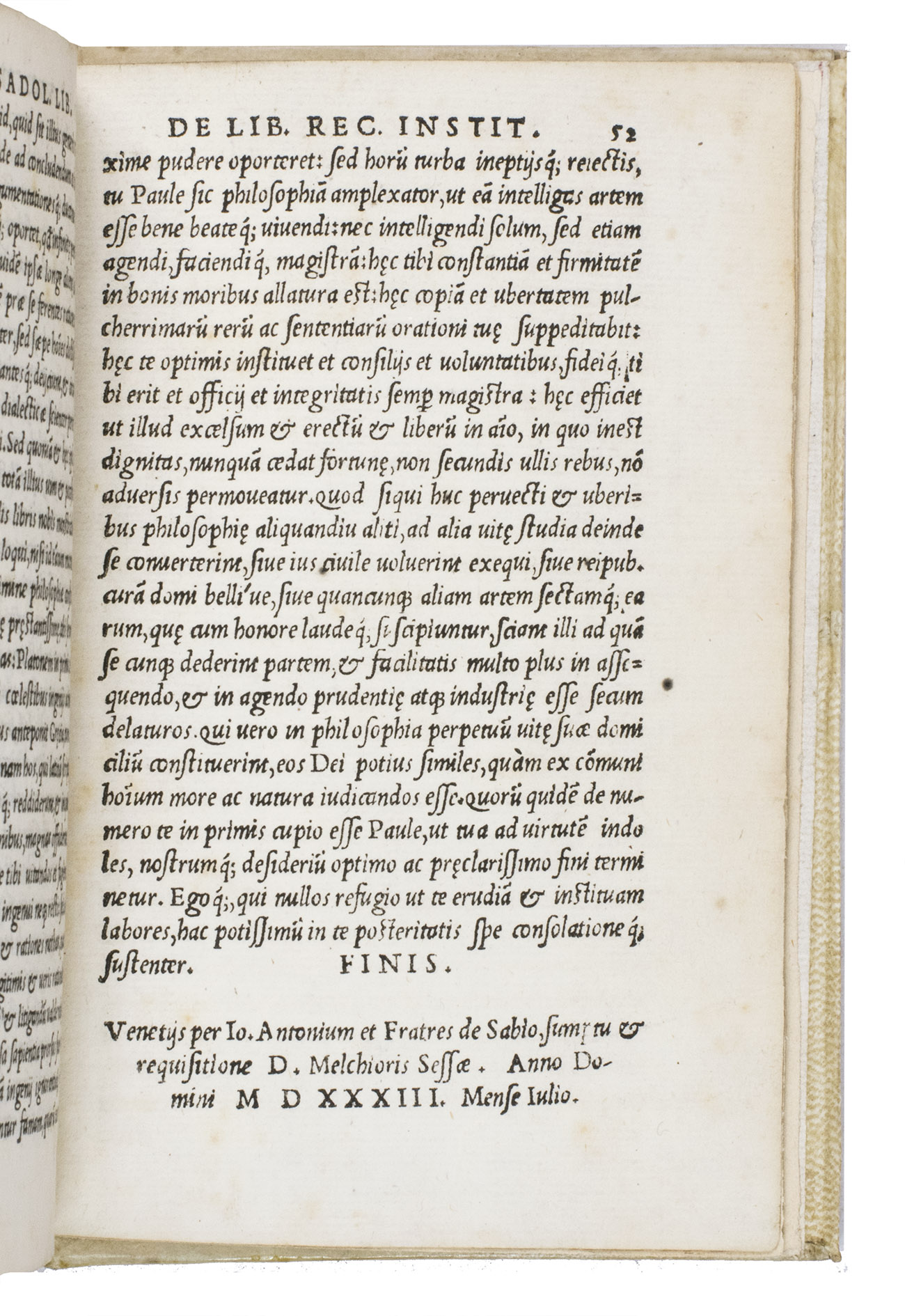SADOLETO, Jacopo.
De liberis recte instituendis, liber.
(Colophon:) Venice, Giovanni Antonio Nicolini da Sabbio & fratres for Melchiorre Sessa, July 1533. Small 8vo (15 x 10 cm). With Sessa's woodcut device of a cat with a mouse on the title-page. Modern overlapping vellum. 52, [1 blank] ll.
€ 6,500
Early Venice edition of one of the great pedagogical works of the Renaissance, ranking with Vives' De Disciplinis and Wimpfeling's Adolescentia. The book is dedicated to Guillaume du Bellay, the celebrated humanist and diplomat in the service of the French king François I. Jacopo Sadoleto (1477-1547), modest and moderate of character, was a model of the Italian Renaissance-men of letters, raised on classical values, but polished by a sensitive Catholicism. After Luther had posted up his theses at Wittenberg, Sadoleto wrote on request of Pope Leo X to Erasmus to persuade him not to join Luther, which was the beginning of a lifelong correspondence between these two great men. When positions at Rome hardened, Sadoleto withdrew discouraged to his bishopric at Carpentras, where he devoted his energies to a just administration, to the promotion of education, and to his writings.
In 1530 or 1531, Sadoleto published the present dialogue on liberal education. It is primarily a discourse on curriculum, rather than a manual for teachers, and shows no evidence of borrowing from Erasmus, whose De pueris instituendis had been published just a year before, in 1529. Although both, Sadoleto and Erasmus, adhered to the Petrarchan emphasis on tutored virtue, conceiving of education as a precondition of a moral life, Erasmus was far more explicit in his accent on religious instruction. Sadoleto at the other hand first set forth the separate functions of each learned discipline in long and digressive detail, and only then he goes on to say that the sum of all those studies - from grammar to music - is their fusion in philosophy, that is in the perception of essences and immutable things. Philosophy then marks the point, according to Sadoleto, at which knowledge generates virtue and harmonises desire with reason. This was of course much more a Platonic than a Christian point of view, but Sadoleto's dialogue was essential a humanist defence of the liberal arts, arising from his concern for the future of sound learning in Italy.
With some worm holes in the blank outer margins of the title-page and first text leaf, without affecting the text, some slight, mainly marginal, foxing. Otherwise in good condition. Buisson, p. 579; STC Italian p. 597; USTC 854175 (23 copies); cf. Adams S-54 & 55 (Lyon and Paris eds. of 1533 and 1535); not in Machiels; for Sadoleto: Douglas, Jac. Sadoleto, Humanist and Reformer.
Related Subjects:



